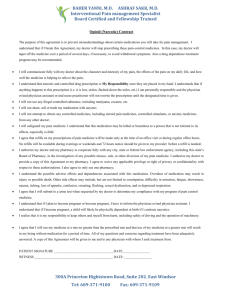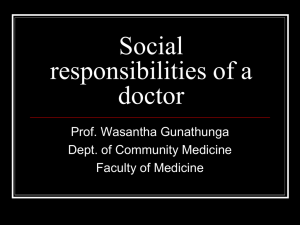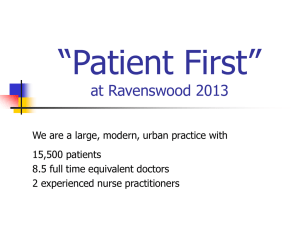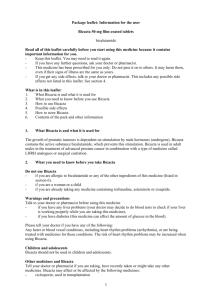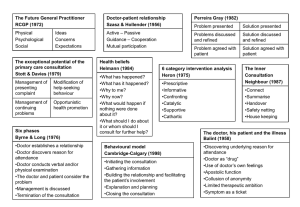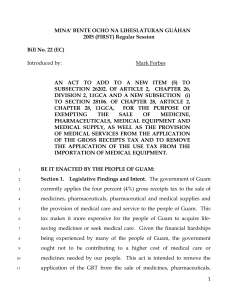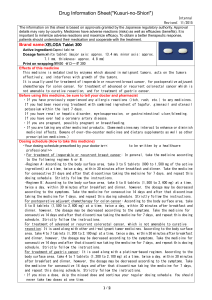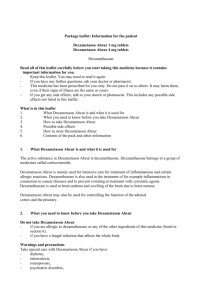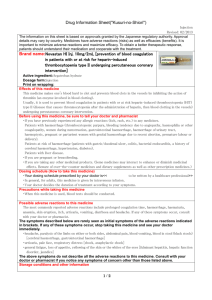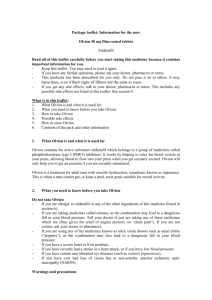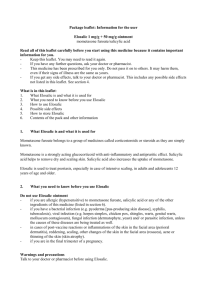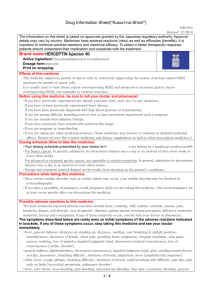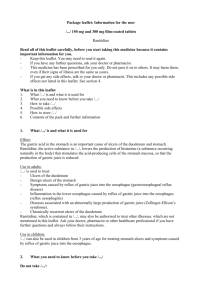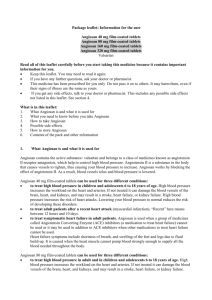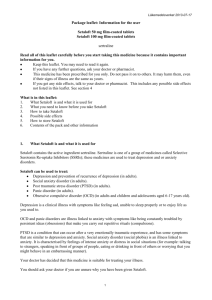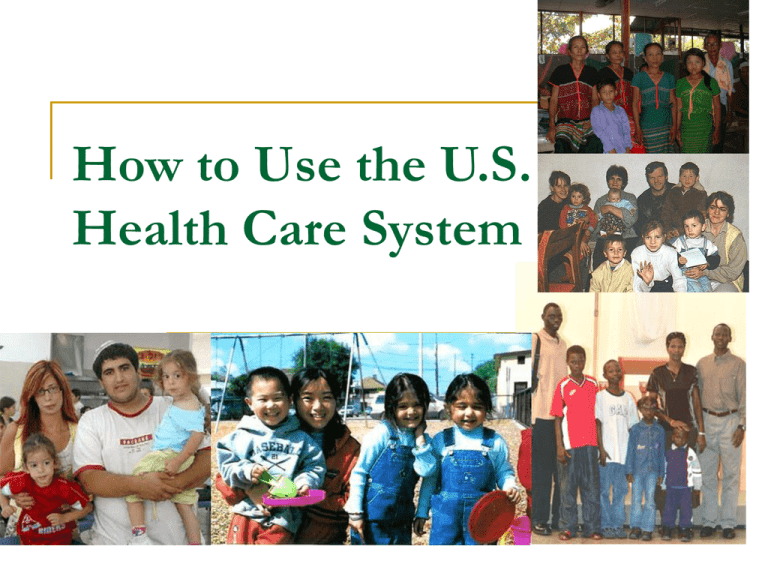
How to Use the U.S.
Health Care System
Why do we need health care?
Health and illness in the U.S.
Health care in the
U.S. may be very
different from what
you are used to,
but doctors here
want to help you
stay healthy!
Getting a health screening
Touhy Health Center
2901 W Touhy Ave
Chicago, IL 60645
(773) 973-7350
Uptown Clinic
845 W Wilson Ave
Chicago, IL 60640
(312) 744-1938
What to expect at the health screening
Fill out forms
A physical exam by the doctor
Blood pressure, temperature, and weight taken
Give a small amount of blood
X-ray or other machine tests so doctors can see if it is healthy
Medicines with instructions
Places providing health care services
Public health departments
Community clinics or neighborhood health centers
Private doctors
Hospitals
Emergency rooms
The American health care system
Health Insurance
In the U.S., people pay money into
a common fund (or health insurance
company) that can be used when
someone in the community needs
health care.
Buying insurance is expensive, but it is
cheaper than paying for health care on your
own.
The American health care system
Types of health insurance
Private or employer insurance
Most people in the U.S. are responsible for paying
for their own health care.
Government health insurance
First 8 months refugees live in the U.S.
Elderly people over 65 years old
People with disabilities
Some children
The American health care system
Types of health insurance
During the first 8 months, you will receive
Medicaid or MediPlan Plus from the government.
Some individuals or families may be able to use
MediPlan Plus for up to 5 years.
Work with your resettlement
agency to determine what will
work for you and your family
The American health care system
Illinois All Kids and Family Care
All Kids is available for children 18 and
younger
Payment is based on income
Family Care is available for parents or
caregivers
Must have child 18 or younger living in house
Must qualify as low-income
Payment is based on income
Your rights
In Illinois, you have the right to:
Health care services regardless of age, sex, or
race
Health care services even if you don’t have
health insurance
Go to a different health care facility
Have hospital charges, rules and regulations
explained
Submit complaints
Your rights
If you do not speak English, you have the right
to an interpreter when you go to a health care
facility by:
Telephone
Staff
Medical interpreter
You do not have to use family or friends to
interpret for you!
Using a health care interpreter
Health care interpreters will:
Translate accurately and completely
Help you schedule future appointments
Keep all information private
Health care interpreters will not:
Give you advice or opinions
Help with financial matters
Arrange or provide transportation
If an interpreter is not provided
Explain that it is a legal right (use this card)
File a complaint with the Office for Civil Rights:
312-353-5999
You don’t need to provide your name
This will not cause problems with future health care
Your responsibilities
Ask for an interpreter when you make an
appointment
Arrive on time to your appointment
Call the doctor if you cannot make the
appointment
Provide accurate and complete information
Ask questions
Follow the treatment plan
Tell your doctor when you don’t
understand or disagree
Pay for health care services you receive
Going to the doctor
Ask friends and family to suggest
a doctor you can be comfortable with
and trust
Make sure you choose a doctor that
accepts your health insurance
Ask about good interpreting services
Other health professionals
Nurse Practitioners and Physician Assistants
Can diagnose most health problems
and write prescriptions
Nurses
Care for patients in hospitals, provide medication,
check vital signs
May work for programs
like WIC
Other health professionals
Midwives
Assist women in childbirth
Some are certified as
nurse practitioners
Medical Assistants and Nurses Aids
Will ask you questions about your health
Will check your weight, blood pressure,
and temperature
Other health professionals
Medical technicians
Take x-rays
Take samples of blood, urine, and poop for testing
Health care workers
Help you understand illnesses
and how to take good care of
your health
When to see a doctor without delay
If you think you or another person may die, call
911 and ask for an ambulance
You may be asked to explain the problem and give the address
Recognizing an emergency:
Chest pain that is severe or last 15 minutes
Choking on food
Loss of consciousness
Not breathing or very difficult breathing
Poisoning or overdose of a drug/medicine
Severe injuries or bleeding
Suicide attempt
Continued seizures
Sudden numbness or paralysis
Sudden severe headache and change in consciousness
Other reasons to see your doctor quickly
Fever of 104 degrees
Vomiting or diarrhea that does not stop
Coughing up or vomiting blood
Toothaches or headaches that do not go away with pain relievers (such as
ibuprofen or acetaminophen)
Abdomial pain that does not go away
Change in mental ability or not thinking clearly
Throbbing headache with blurred vision
Problems that become much worse
Change in ability to see (such as double vision)
Taking medicine safely
Over the counter medicines
There are many medicines
available to purchase in stores
without a doctor’s prescription
These medicines have instructions
that must be followed very carefully
Don’t take more than instructed
Check with a pharmacist to make
sure the medicine will not make you sick
Taking medicine safely
Prescription medicines
Your doctor may give you a
prescription for medicine…
Tell you doctor and
pharmacist every herb or
medicine you take.
You must take the medicine
exactly as the doctor says!
If you don’t understand or
disagree, ask questions!
Preventive health care
There are things we can do to be
healthier and keep from getting sick!
We call this prevention.
Mental health care
There are times in our lives when we feel:
Sad
Angry
Worried
Scared
Confused
There are health workers who can help us feel
better. Tell you doctor if you do not feel like yourself or
want to talk to someone.
How to make an appointment
Keep important numbers for
clinics and hospitals
When you call the clinic,
ask for an interpreter, if needed.
Tell the receptionist what type
of health care you need
Write notes about the
date, time, and location
ESL resources and activities
http://www.cal.org/caela/esl_resources/Health
/
http://www.ccs.k12.va.us/programs/esl/docs/h
ealth/Health_Curriculum.pdf
http://www.expectingthebest.org/pages/curric
ulum/curriculum.htm
http://www.expectingthebest.org/documents/l
essons/1youarewhatyoueat-teacherCFSD.pdf



